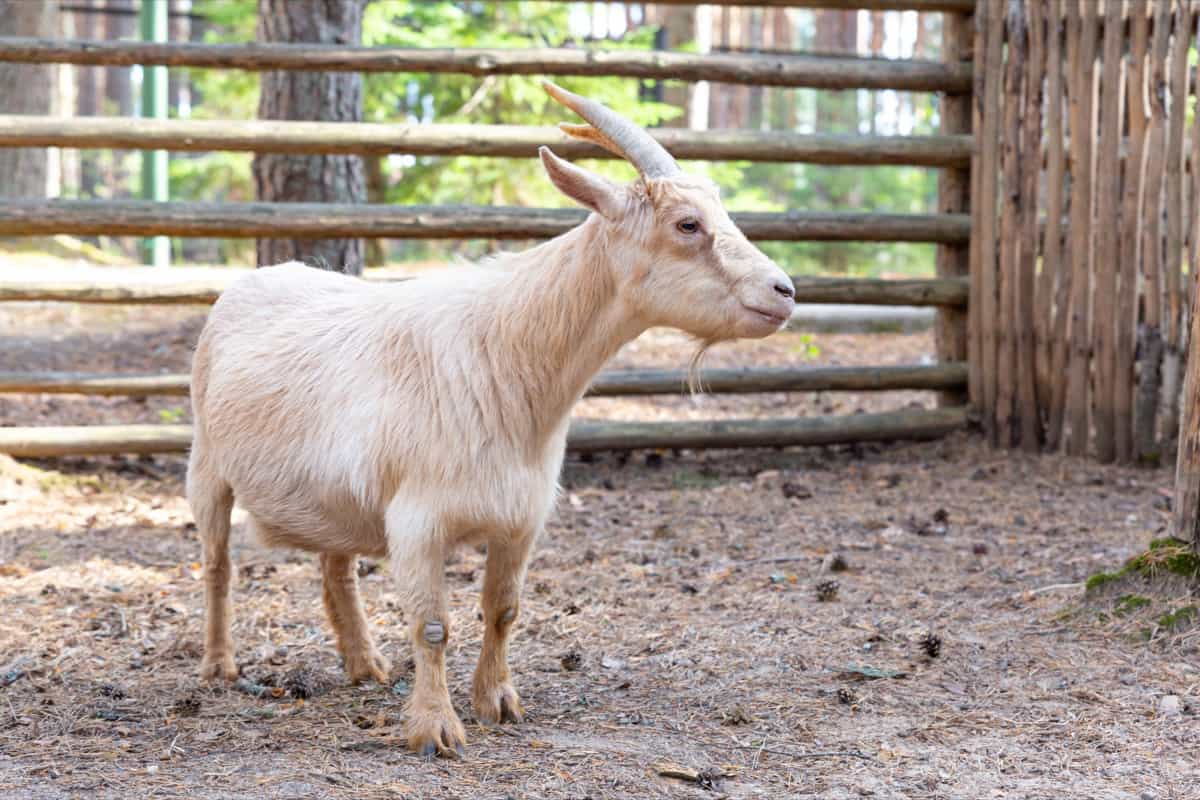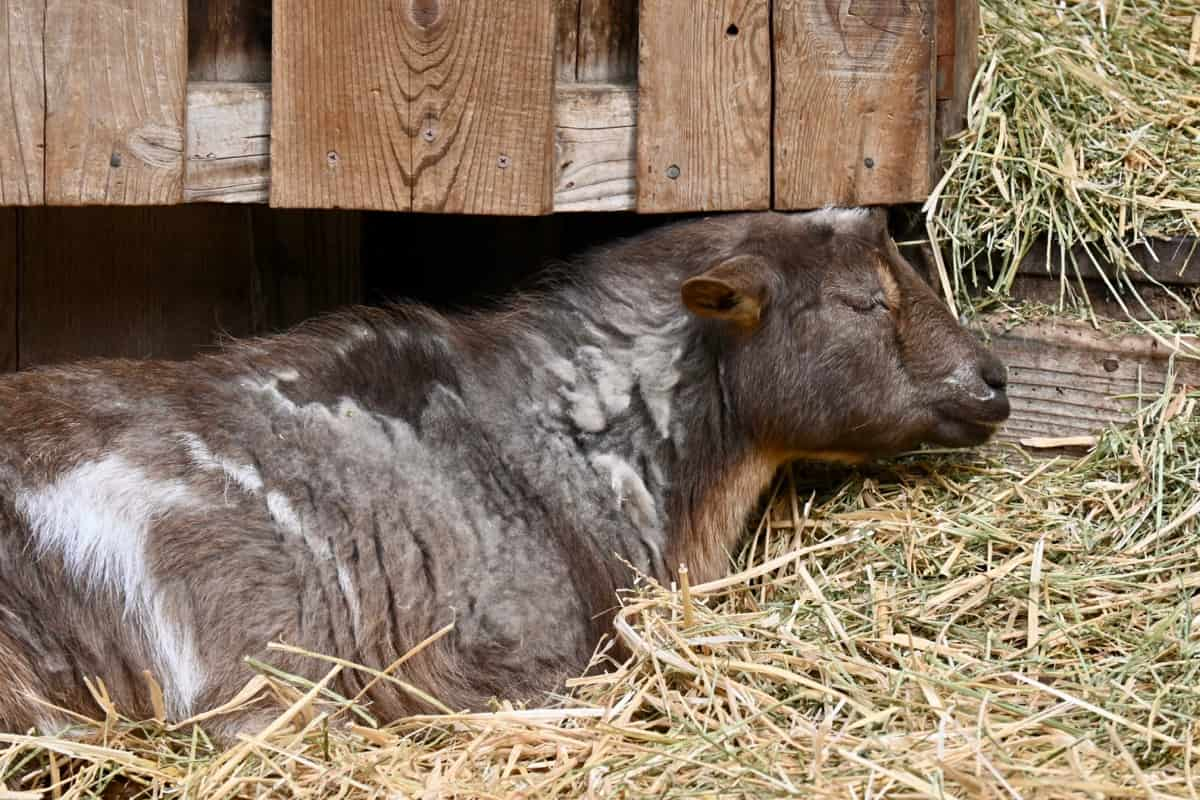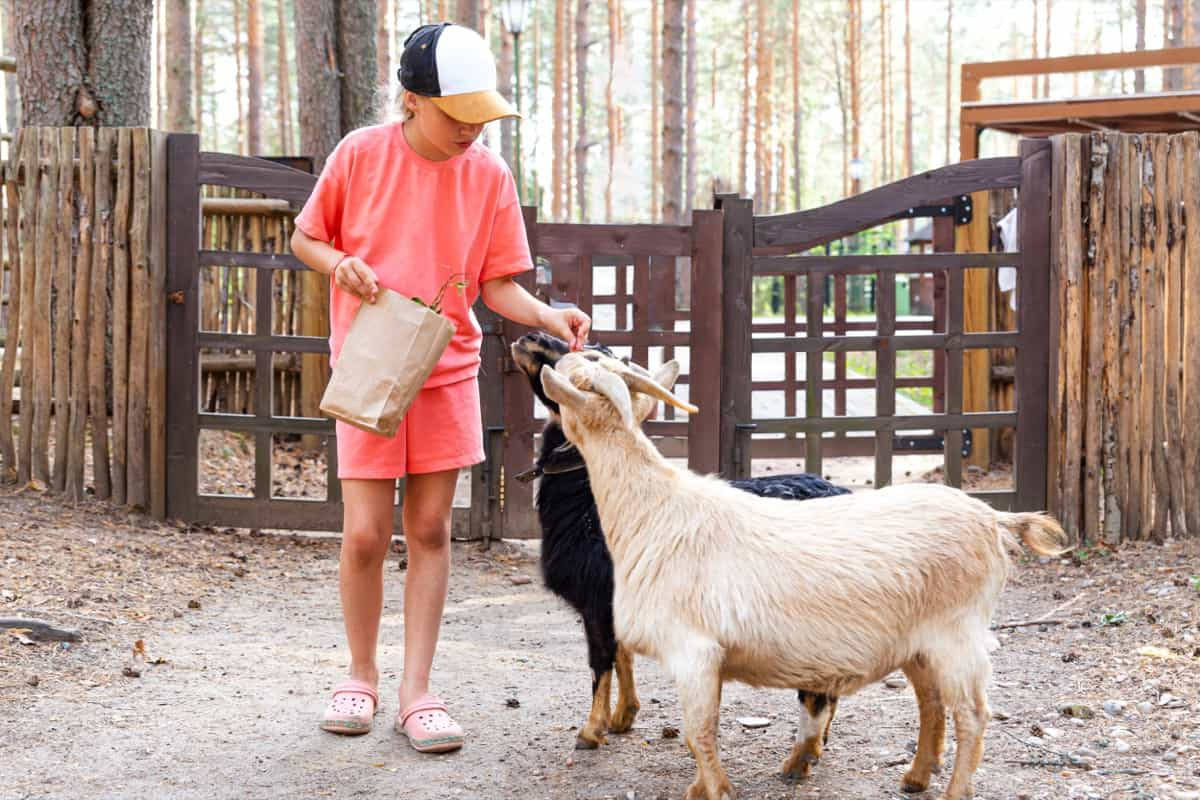Nigerian Dwarf goats, also known as pygmy goats, are popular among farmers and homesteaders due to their small size, high milk production, and easy-to-handle nature. In this article, we will discuss the origin, physical characteristics, pros, and cons of Nigerian Dwarf goats in detail.

Nigerian Dwarf Goat Facts
Origin of Nigerian Dwarf Goats
Nigerian Dwarf goats, also known as pygmy goats, are a breed of small domestic goats that originated in West Africa. Specifically, the Nigerian Dwarf goat is believed to have originated in Nigeria, where they were bred by the Yoruba tribe for their milk, meat, and hides. Over time, these goats were imported to other African countries, including Cameroon and Ghana.
In the 1950s, Nigerian Dwarf goats were first introduced to the United States, primarily for exhibition purposes. However, their high milk production and friendly disposition soon made them a popular breed among farmers and homesteaders. Today, Nigerian Dwarf goats can be found in many countries worldwide, including the United States, Canada, and Australia.
The Nigerian Dwarf goat is a result of the selective breeding practices of the Yoruba tribe, who were selected for animals with small size, high milk production, and a friendly disposition. These goats were bred to thrive in the hot and humid climate of West Africa, where they could forage on various plants and shrubs. Their small size also made them easy to handle and transport, which was necessary for nomadic tribes that needed to move their herds from place to place.
Physical Characteristics of Nigerian Dwarf Goats
Nigerian Dwarf goats are small, standing only 17 to 21 inches tall at the shoulder and weighing between 50 and 75 pounds. They come in various colors, including black, white, gold, and chocolate, and can have a variety of coat patterns, such as solid, spotted, or patterned. Their coats are short and soft, with a fine undercoat to keep them warm in cold weather.
Nigerian Dwarf goats have small, erect ears and straight, short horns that grow upwards. Some breeders choose to disbud their goats to prevent the growth of horns, which can be a safety concern. Nigerian Dwarf goats have a friendly and curious disposition, which makes them easy to handle and train.
Pros of Nigerian Dwarf Goats
- High milk production: Nigerian Dwarf goats’ high milk production attracts farmers and homesteaders. They produce up to two quarts of milk daily, which is high considering their small size.
- Easy to handle: Nigerian Dwarf goats have a friendly and curious nature, which makes them easy to handle and train. They are also small, making them easier to handle than larger goat breeds.
- Efficient use of space: Nigerian Dwarf goats do not require much space to roam, making them a good choice for small farms and homesteads. They are also efficient at converting feed into milk, making them a cost-effective choice for farmers.
- Dual purpose: Nigerian Dwarf goats are a dual-purpose breed that can be used for milk and meat production. This makes them a versatile and valuable addition to any farm or homestead.
In case you missed it: Black Bengal Goat Farming: Goat Kid Price, Meat Price, And Growth Rate

Cons of Nigerian Dwarf Goats
- Health concerns: Nigerian Dwarf goats are prone to certain health issues, such as urinary calculi and mastitis. It is important to monitor their diet and ensure they can access clean water to prevent these issues.
- Requires daily care: Like all livestock, Nigerian Dwarf goats require daily care, including feeding, watering, and cleaning their living area. This can be time-consuming and may not be suitable for those who have limited time or resources.
- Fertility issues: Nigerian Dwarf goats are known to have fertility issues, including difficult pregnancies and low fertility rates. This can make breeding and maintaining a herd challenging for some farmers.
- Short lifespan: Nigerian Dwarf goats have a relatively short lifespan of 10 to 15 years. This means they will need to be replaced more frequently than other livestock, which can financially burden some farmers.
Uses of Nigerian Dwarf Goats
Nigerian Dwarf goats are primarily used for their milk, which is high in butterfat and protein content. Milk is also a healthy option because it contains many essential nutrients like vitamins and minerals. Some farmers also use Nigerian Dwarf goats for meat production, although this is not as common due to their small size. Nigerian Dwarf goats can also be used for fiber production, as their hair can be spun into yarn or used for felting. Additionally, their manure is a valuable fertilizer for gardens and crops.
Breeding Nigerian Dwarf Goats
Breeding Nigerian Dwarf goats requires careful planning and management. Choosing healthy, high-quality animals for breeding is important to ensure the offspring are healthy and have desirable traits. Nigerian Dwarf goats have a relatively short gestation period of 145 to 153 days, and females typically give birth to twins or triplets. When breeding Nigerian Dwarf goats, monitoring their nutrition and ensuring they have access to clean water is important. They should also receive regular veterinary care to prevent and treat health issues.
Housing and Care
Nigerian Dwarf goats are adaptable to various climates and can be kept in various housing situations. However, they require access to a dry, sheltered area to protect them from inclement weather. Their living area should be kept clean and well-ventilated to prevent the spread of disease. Nigerian Dwarf goats require a balanced diet that includes hay, grain, and fresh water.
They also benefit from access to pasture and browse, providing them with additional nutrients and helping keep them mentally stimulated. When caring for Nigerian Dwarf goats, monitoring their health and behavior is important. Signs of illness can include loss of appetite, lethargy, and diarrhea. If any health concerns arise, it is important to seek veterinary care promptly.
In case you missed it: Frequently Asked Questions About Goat Farming

Conclusion
Nigerian Dwarf goats are popular among farmers and homesteaders due to their small size, high milk production, and friendly nature. They are versatile animals for milk, meat, fiber, and fertilizer production. However, they require daily care and attention, and breeders should know about their health and fertility issues. With proper care and management, Nigerian Dwarf goats can be valuable to any farm or homestead.
- Feed Your Flock for Less: Top 10 Tips to Save on Chicken Feed
- Ultimate Guide to Ossabaw Island Hog: Breeding, Raising, Diet, and Care
- Hatching Answers: The Top 10 Reasons Your Chickens Aren’t Laying Eggs
- Eggs and Economics: Breaking Down the Cost of Raising Backyard Chickens
- Defend Your Greens: Proven Methods to Keep Iguanas Out of Your Garden
- Ultimate Guide to Cinnamon Queen Chicken: A Comprehensive Guide for Beginners
- Ultimate Guide to California Tan Chicken: Breeding, Raising, Diet, Egg-Production and Care
- Ultimate Guide to Marsh Daisy Chicken: Breeding, Raising, Diet, and Care
- 10 Types of Chicken Farming Businesses You Can Start for Profits